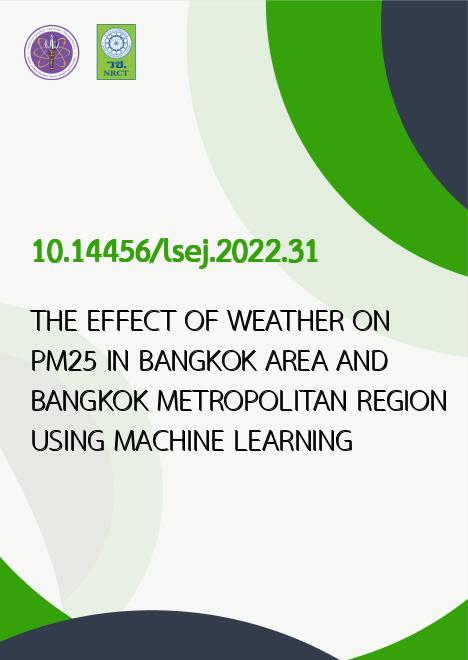
|
THE EFFECT OF WEATHER ON PM2.5 IN BANGKOK AREA AND BANGKOK METROPOLITAN REGION USING MACHINE LEARNING |
|---|---|
| รหัสดีโอไอ | |
| Creator | สุดารัตน์ ชาติสุทธิ |
| Title | THE EFFECT OF WEATHER ON PM2.5 IN BANGKOK AREA AND BANGKOK METROPOLITAN REGION USING MACHINE LEARNING |
| Contributor | Chanidapa Winalai, Satawat Nanthasen |
| Publisher | Pibulsongkram Rajabhat University |
| Publication Year | 2565 |
| Journal Title | Life Sciences and Environment Journal |
| Journal Vol. | 23 |
| Journal No. | 2 |
| Page no. | 409-421 |
| Keyword | PM2.5, Weather variables, Neural network |
| URL Website | https://ph01.tci-thaijo.org/index.php/psru/index |
| Website title | Life Sciences and Environment Journal |
| ISSN | 2773-9201 |
| Abstract | The purpose of this study was to investigate the effects of five weather variables (temperature, precipitation, relative humidity, wind speed, and STP) on the particulate matter 2.5 (PM2.5) concentrations and to apply a long short-term memory model (LSTM) in order to predict PM2.5 concentrations from these weather variables. We used the PM2.5 data from the Pollution Control Department (Thai Ministry of Natural Resources and the Environment) and weather variables data from the Global Surface Summary of the Day (GSOD) in the area of study (Bangkok area and Bangkok Metropolitan Region). We hypothesized that weather variables relate to PM2.5 concentrations and could be used to predict the concentrations of PM2.5. The results showed that temperature and precipitation could be used to predict PM2.5 concentrations. We also found that a more accurate model can be obtained by using data of predictor variations over the same period. |